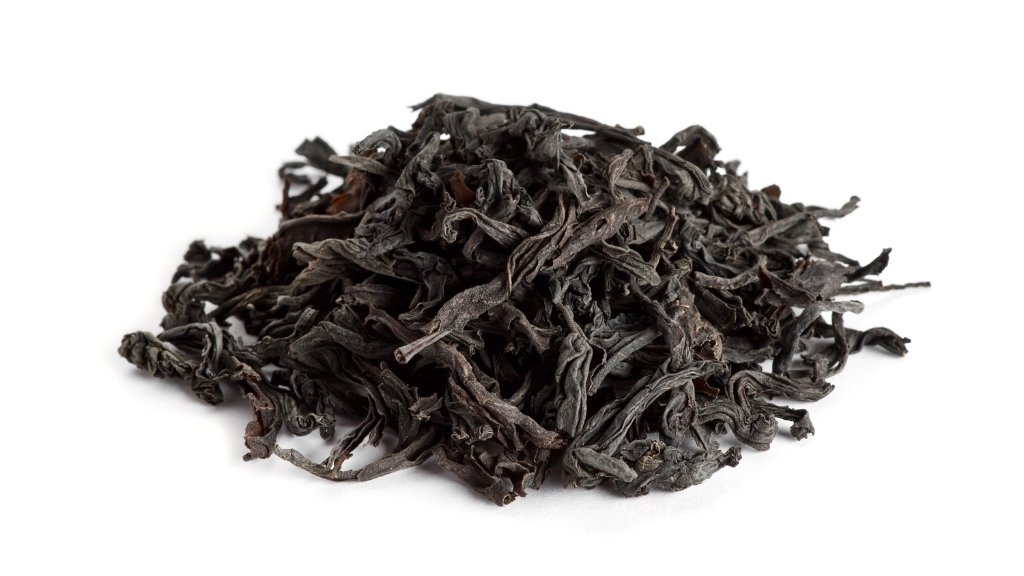Have you ever wondered why Turkish tea is not only served but also served with care, connection, and purpose? In Turkey, it is called çay, and this long-established practice is more than a hot drink. Due to its antioxidant-rich leaves, its smooth taste, and its ability to relax, Turkish tea has become an almost silent hero of heartwarming traditions and even contemporary health-related discourse.
Then, is Turkish tea healthy? So, how much caffeine does it actually contain? And does it really work on your heart, digestion, or your mind? So, in this guide, we will take you through the evidence-based Turkish tea benefits, including nutrition facts, side effects, and expert opinions. But first, I would like to tell you a little story that altered my perception of tea forever before we get into the science of it all…
A Personal Discovery in a Glass of Çay
The thing that really amazed me was that Turkish tea helps my body and my mind in the long term. When taking only two to three small glasses a day, I felt a noticeable increase in concentration, easier digestion, and no afternoon crashes. With time, it was no longer a comfort drink but more of a wellness habit that was based on simplicity. I began to read more about its natural advantages, and science confirmed it.
I have now completely substituted my second cup of coffee with Turkish tea, and I am not the only one. It has turned into a common practice in my health community, and it is a warm, clear, and relaxing drink without the feeling of caffeine jitters.
What Makes Turkish Tea Unique in the World of Wellness?
Turkish tea is famous not only because of its flavor, but also because of its cultural and health background. It is traditionally brewed in a two-tiered çaydanlik and poured into small tulip glasses, which stimulates slower drinking, a time of respite in the day. The tradition developed in Turkey during World War I when coffee was too costly and local people replaced it with tea, which was affordable and soothing. It has since become a health ritual associated with digestion, socializing, and hospitality.

Dried Turkish Black Tea Leaves.
Unlike English or herbal teas, Turkish tea uses Camellia sinensis leaves grown in the lush Rize region. This is how it stands out:
- Stronger Brew: It’s usually served without milk, giving it a more concentrated flavor.
- Higher in Polyphenols: These antioxidants may support heart health and reduce inflammation.
- Cultural Glassware: The tulip glass keeps your hands warm and your sips intentional.
Top Science-Backed Health Benefits of Turkish Tea
1. A Powerful Source of Antioxidants
Among the most significant Turkish tea advantages is the high amount of antioxidants, particularly polyphenols, e.g., flavonoids and catechins. These chemicals neutralize toxic free radicals in the body, unstable molecules that add to oxidative stress. This is because by minimizing this cellular damage, Turkish tea could help in the prevention of heart disease, some cancers, and early aging.
Teas such as çay, a polyphenol-rich tea, are essential in the traditional Turkish diet – they promote longevity and day-to-day vitality.
The frequent consumption of antioxidant-rich teas is also related to enhanced metabolic activity, the health of the skin, and the decreased risk of neurodegenerative disorders such as Alzheimer’s disease.
2. It Supports Heart Health
Turkish tea is prepared using black tea leaves and has been recognized to have beneficial impacts on cardiovascular well-being. It has been proposed that black tea can be used to reduce LDL (bad) cholesterol, make blood vessels more flexible, and decrease blood pressure with time. This happens thanks to the tea’s content of flavonoids, which support vascular function and help regulate inflammation in arteries.
Regular consumption of Turkish tea without large quantities of sugar can help you avoid getting hypertension and other cardiovascular problems. It is also warm and comforting in nature, helping to relax, which in turn can indirectly promote heart health by reducing stress levels, a recognized cause of cardiovascular disease.
3. Mental Clarity Without the Crash
In contrast to coffee, which provides a large amount of caffeine, Turkish tea has a mild stimulant effect on the mind due to the moderate level of caffeine (approximately 50 mg per glass). This is an excellent choice for anyone who seeks to enhance alertness, concentration, or cognitive efficiency without the jitters and crash that is typical of intense coffee.
Besides caffeine, tea also has a synergistic effect with caffeine through the presence of one amino acid, L-theanine, which leaves a person in a calm state of focus. That is why many people consider Turkish tea to be the ideal tea for work, study, or long periods of creative thinking, as it clears your mind and calms your nerves.
4. A Digestive Aid with Anti-Inflammatory Perks
Turkish tea is not only a cultural staple, but it is also a reason to have tea after a meal. Having a warm cup after a meal can aid digestive enzymes, facilitate the digestion of food, and alleviate slight bloating. The polyphenols in tea also decrease the inflammation in the intestine. They may alleviate the symptoms of mild gastritis, indigestion, or abdominal pain.
Other compounds in black tea, including thearubigins and theaflavins, are anti-inflammatory and help balance the gut in experiments. This turns Turkish tea into a kind friend of your gastrointestinal tract, at least when used moderately and without large amounts of additional ingredients.
5. May Support Weight Management
Consuming Turkish tea can aid in weight loss management when combined with a proper diet. Caffeine and polyphenols in black tea may stimulate metabolism a little and promote fat burning, particularly when taken before exercise. There are also studies that state that black tea can help to regulate the level of sugar in the blood and, by doing so, reduce sugar cravings and overeating.
Although it is not a miracle weight loss drink, the unsweetened Turkish tea, with its presence in your daily life, can supplement your work to stay at a healthy weight.
6. Good for Oral Health
Black tea has natural products that could aid in oral health. Polyphenols in the Turkish tea can curb the rise of bacteria causing cavities, plaque, and bad breath. Unsweetened Turkish tea is a mild drink for your mouth, unlike a sugary drink or an acidic soda, when taken in moderation.
Tea also has the effect of reducing the pH of your mouth. This environment does not favor the growth of harmful bacteria. Watch out not to overdo it with sugar or lemon, which can erode enamel in the long run.
7. May Boost the Immune System
The antioxidants and antimicrobial effects of Turkish tea may provide a slight stimulation to the immune system, which makes the body resistant to common infections. The presence of such compounds as catechins, alkaloids, and flavonoids contributes to the combating of oxidative stress and inflammation, which are associated with compromised immunity.
Certain studies suggest that tea drinkers may experience fewer colds or flu episodes or recover more quickly than those who do not drink tea; however, further research is needed to confirm these findings.
8. Daily Ritual That Encourages Hydration & Balance
Even though Turkish tea contains caffeine, it aids in general hydration, particularly when consumed during the day. The tea-making and sharing ritual promotes mindfulness, relaxation, and human connection, which are the main aspects of emotional well-being.
Sipping tea will also allow you to take your time, have mindful breaks, and keep yourself hydrated, which is an aspect that most individuals do not consider in their busy lives.
Whether you prefer to drink it to concentrate, aid digestion, or maintain a touch of tradition, Turkish tea is an ancient drink with contemporary benefits to health.
Does Turkish Tea Contain Caffeine? How Much?
Yes, there is caffeine in Turkish tea, although it is not as much as in a cup of coffee. On average, a cup holds around 40–60 mg of caffeine, which sits comfortably between green tea (25–35 mg) and coffee (80–120 mg). That is, it provides you with a subtle energy boost without jitters.
How much caffeine you get depends on how long you let it steep in the top pot, or demlik.
- Longer Steeping: Boosts caffeine content and gives a stronger, bolder flavor.
- More Water Added: Dilutes the brew, resulting in a gentler cup with less caffeine.
I like to make the ratio to my taste, which makes Turkish tea not only invigorating but also relaxing, which is exactly what I need to drink all day.
Calories in Turkish Tea: What You’re Really Drinking
On its own, Turkish tea (or plain çay) has zero calories, making it a great choice for anyone watching their weight. However, when you add sugar, which is rather typical in the traditional context, the number of calories increases to approximately 20-40 per glass, depending on the number of spoonfuls you mix in.
- Plain Çay: A calorie-free drink that hydrates and refreshes.
- Sugar-Added Çay: Adds sweetness but also extra calories, so moderation matters.
When you are trying to lose weight, you can stick to unsweetened Turkish tea. Its antioxidants and mild thermogenic properties may gently support metabolism and help manage appetite over time.
Can Too Much Çay Cause Side Effects?
Although Turkish tea is usually harmless, excessive consumption, in particular, in the late evening, may cause a couple of undesirable effects in some individuals. You can read more about these side effects and safety tips in our in-depth guide, and if you’re curious to see how the benefits and side effects of Turkish tea compare, then explore our expert breakdown for a balanced perspective.
- Sleep Trouble: The natural caffeine in çay may cause insomnia if consumed too close to bedtime.
- Sensitive Stomachs: It might trigger acid reflux in those with delicate digestion.
- Caffeine Sensitivity: Pregnant women and children may need to limit their intake to avoid overstimulation.
Moderation is the way to go. It is absolutely acceptable to drink a couple of cups of Turkish tea per day, but you should watch your body’s response.
Who Should (and Shouldn’t) Drink Turkish Tea
Everyone is used to drinking Turkish tea as a daily practice, yet not all people respond to caffeine in the same manner. It can be enjoyed safely according to your needs in the following way:
- Pregnant Women: A cup or two a day is generally fine, but it’s best to keep it moderate because of the caffeine. Lots of pregnant mothers in Turkey drink it when slightly brewed.
- Kids & Elderly: Low-caffeine or diluted tea is common in family homes and is usually well-tolerated. It is not stimulation as much as warmth and connection.
- Caffeine-Sensitive Individuals: If you’re sensitive, try steeping it lighter or switching to herbal versions like apple tea or linden. It provides you with the warm tea sensation minus the jitters.
Drinking Turkish tea can be a healthy habit; all you need to do is follow your body and make the beverage as comfortable as possible.
Best Practices for Enjoying Turkish Tea for Health
Ideal Times to Drink Turkish Tea
Time is actually crucial to make the best out of Turkish tea. The morning is a good time to take a cup, which will easily aid digestion and provide clarity of mind to start the day. It aids the stomach after meals, particularly when taken without sugar. In the afternoon, it’s a nice alternative to coffee, as it provides a relaxed energy boost without excess stimulation. Additionally, you can explore how to drink Turkish tea properly, including etiquette tips and cultural insights that enhance your daily ritual.
Brew Smarter: Lower Caffeine or Boost Antioxidants Naturally
The brewing of Turkish tea has a direct relationship with its health effects.
- To increase antioxidants, let the tea steep for 10–15 minutes. The antioxidant compounds are released the longer it brews.
- To reduce caffeine, mix less demlik (the concentrated top brew) with more hot water for a lighter cup that’s gentler on your system.
What to Pair Turkish Tea With
The health benefits of Turkish tea can also be enhanced by the foods you pair with it. I recommend pairing it with raw nuts, dried figs, or a bit of light cheese. These healthy snacks are nutritious and natural, making your tea break both enjoyable and nutritious.
A Personal Take: Turkish Tea’s Quiet Strength in Wellness
Turkish tea, when brewed the traditional way and enjoyed in moderation, is a quiet powerhouse in global wellness culture. As I often say:
“Turkish tea, when brewed right and consumed moderately, is an overlooked gem in global wellness traditions.”
Its simplicity, deep flavor, and ritual-like preparation offer both comfort and clarity – something many modern drinks can’t match.

A Smarter Choice Compared to Sugary Western Tea Trends
In contrast to the sugary iced teas or tea lattes that contain high-calorie content and are common in the Western diet, Turkish tea is naturally calorie-free and rich in healthy natural compounds. It is a conscious, healthier daily practice that avoids introducing unnecessary sugar or fat into your daily routine.
And if you’re curious to enjoy Turkish tea in a modern, refreshing form especially during hot days, check out this chilled twist on tradition: How to Make Turkish Iced Tea.
Frequently Asked Questions
Is Turkish tea healthy to drink daily?
Yes, Turkish tea is healthy to consume daily, provided you do not consume it in excess and add excessive amounts of sugar. It is low-calorie, has a large amount of antioxidants, and may assist digestion and concentration when consumed in moderation.
Does Turkish tea keep you awake?
Turkish tea is not caffeine-free, but it has lower caffeine levels than coffee. It can make you feel awake throughout the day and not jittery. Nevertheless, some individuals may develop insomnia when they drink it at night.
What are the side effects of Turkish tea?
In excessive amounts, Turkish tea can result in acid reflux, weak caffeine intolerance, or restlessness, the stimulant-sensitive or digestion-sensitive individuals.
How many calories are in a cup of Turkish tea?
Turkish tea (just a plain cup) contains no calories. However, when you add sugar, it may be 20 to 40 calories per glass, depending on the amount that is added.
Is Turkish tea stronger than black tea?
Turkish tea is usually more pungent in taste because of its concentrated preparation process. However, it does not always have the same amount of caffeine; sometimes, it has less than regular black tea, depending on the length of steeping and dilution.
Final Thoughts: A Wellness-Based Daily Ritual
Turkish tea is not a beverage; it is a soothing daily routine that combines tradition, flavor, and mild health benefits. Each cup does more than just comfort with its natural antioxidants, digestive support, and smooth, low-caffeine energy. Whether you drink it alone or with good people, including Turkish tea in your daily routine is a minor habit with eternal health advantages.

Hi, I’m the heart behind Turkish Aura. I lived in Turkey for 10 beautiful years, where I fell in love with its tea, traditions, and soulful way of life. This blog is my way of sharing real stories, cultural wisdom, and personal experiences to help you feel the true essence of Turkish culture – just like I did.Thank you for being here, and love you!



